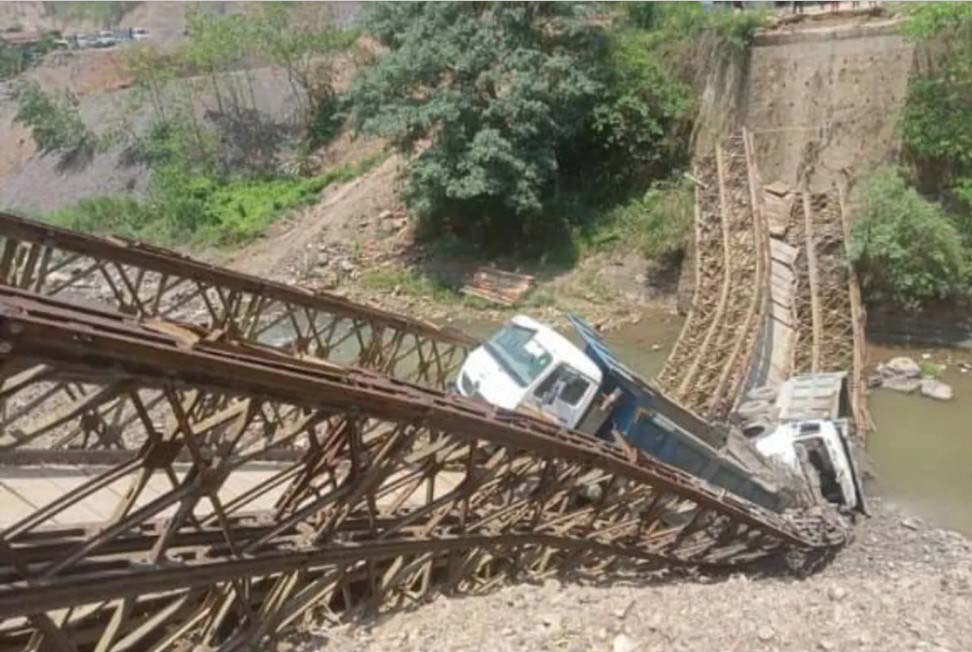It has been raining for two-three days in Manipur; many localities are flooded, and people are suffering from flood havoc. But the rain is likely to continue. It may not be wrong to presume that people have to face the problems of flooding if it rains for one or two hours, or more likely, two or three days in Manipur. People have known that flooding is due to climate change, but the relevant question may also come up about whether the cause of the flood may be treated as a man-made flood, a modern flood, or an artificial flood. The question is based on the visible inability to stop the reduction in drainage size. They are also not well managed. The existing drainages appear not to be in a position to drain out the rainwater. On the other hand, the situation is the drastic degradation and reduction of the water reservoirs in the form of Pat, Pukhri, drains, etc. There were many pats (lakes) in Manipur; even in Imphal urban area, there were many such pats: sufficient wetland, rivers, meadows, forest areas, etc. The importance of the pat is considered to be conservation of the water coming from the surrounding areas, including drains, and purification of the water, among other things. It is also a place for many species to live and a source of food for them. But most of them have now been replaced more or less by residential and commercial houses, quarters, roads, offices, educational institutions, etc. But it is significant that the names of lost pats have been remaining until now. Some of them are Keishampat, Lamphelpat, Sangaipat, Akampat, Porompat, Hicham Yacham Yaicham Pat, etc. Therefore, the ecosystem of the pat has almost been degraded.
In the past, there was a drainage system of adequate size and depth. It was also the culture of the people to clean the drainage from time to time or when it was necessary. It was also well believed that encroachment on the drainage and obstructions of the water movement were against the moral bindings of society. We may study the drainage system in terms of scientific knowledge, traditional ecological knowledge, indigenous knowledge, and the perspective of religion. We may find certain aspects of the drainage system. Our culture and identity believe that the drainage system is the route of certain deities that cannot be obstructed. Therefore, the consequences of encroachment and obstruction of the flow of water in the drains were considered to be the blocking of the workings of the physiological system of human bodies, particularly the circulation of blood.
Our ancestors were well-educated, and they could think and execute for future generations. They knew the relationship of a human being with the sustainable ecology and environment. They knew well how to maintain and manage our mother nature, and we have experiences it in the form of riddle, rituals, folk stories, folk songs, folk dances, poems etc. This relationship has been reduced considerably at present. We are living in a modern society where everything has been of a higher intellectual level; hence, there is another reason to think about the ecology and environment of the future generation, don’t we? We know for the fact that the feature of climate and weather have drastically changed. And the cause of it can be human pressure or action. Isn’t the current flood situation going to be maintained or blanketed until the rain stops? Or are we waiting to see if anything changes next year?
It may be possible that there might be rain again, and if that happens, there will be a big problem in agriculture, beside the normal lives of the people and the governance of the state, like anything else. During this period, all living things are stuck in the middle. With that, scientists and environmentalists have generated a lot of awareness, but it will be helpful if it comes with practical awareness among the stakeholders. And it would like to state that the state of “Manipur” is very rich in culture, with abundant flora and fauna. The lives of people in the state have also been based on its culture and identity. There are some basic things that can’t be left out: Traditional ecological knowledge base, and to discuss all the hidden truths, hidden facts, and hidden knowledge with the accumulated legacies of our forefathers. The minds of the previous generations have put a lot on it to uplift the future of the next generation. As to what it has to do with it, it is imperative to think about our future generation and get some more rules of dos and don’ts. Is it not a relevant issue for further discussion?

The writer is a PhD Scholar, Manipur University and can be reached at: yaiphabafff@gmail.com











